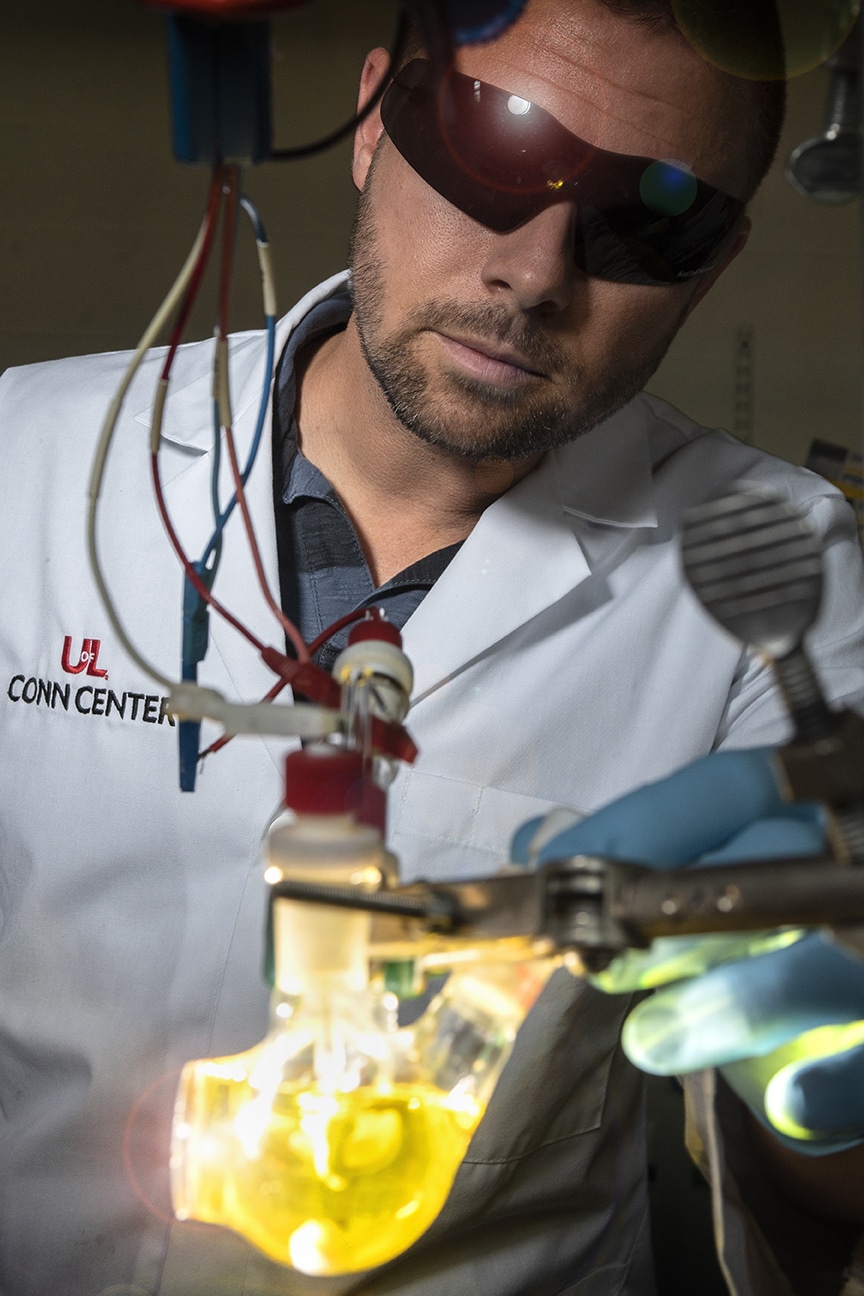By Matthew Keck —
Joshua Spurgeon, a University of Louisville renewable energy researcher, won the National Science Foundation (NSF) CAREER Award. Along with the award, he will receive a $500,000 grant from the NSF that will go towards research and education over the next five years.
Spurgeon is theme leader for solar fuels at the Conn Center for Renewable Energy Research in the J.B. School of Engineering. “The basic concept is to find ways to direct the energy of sunlight to run electrochemical reactions such as water-splitting to make clean fuels like hydrogen,” he said.
His research is geared towards increasing energy independence and sustainability of society. “Specifically, making clean fuels like H2, which have no CO2 emissions when used, are a way to have energy-dense storage of solar energy,” said Spurgeon. “This H2 could be used in fuel cells for onsite electricity generation for utilities, or it could be used for transportation applications, or it can be a clean feedstock in the chemical industry. But it is a way to store intermittent solar energy so that it can be used at any time, like when the sun isn’t shining.”
Spurgeon said the grant will be used to research microparticles capable of spontaneously splitting water under illumination. “We will improve the design of these particles, verify their performance capabilities, and study their behavior under different conditions,” he said. “We will also study and try to improve a whole system, which would be a slurry of these solar water-splitting particles suspended in water.”
In addition to the research aspect of the grant, some of it will go towards education. “The educational part of the grant involves helping to develop a new master’s program in energy and materials science, bringing in underrepresented students for research internships, and getting more senior graduate students into entrepreneurial education to help them commercialize their successes,” said Spurgeon.
To be considered for this award, Spurgeon had to submit a proposal detailing the research he would conduct over the five years and education initiatives to tie students into the work. He is unique in winning this award because he is non-faculty, placing him among a small group of recipients like himself.
He has been researching the solar fuels field since earning his PhD from the California Institute of Technology in 2010. Before coming to U of L in 2014, he worked at the Joint Center for Artificial Photosynthesis, researching solar fuels.
Photo Courtesy of The University of Louisville




